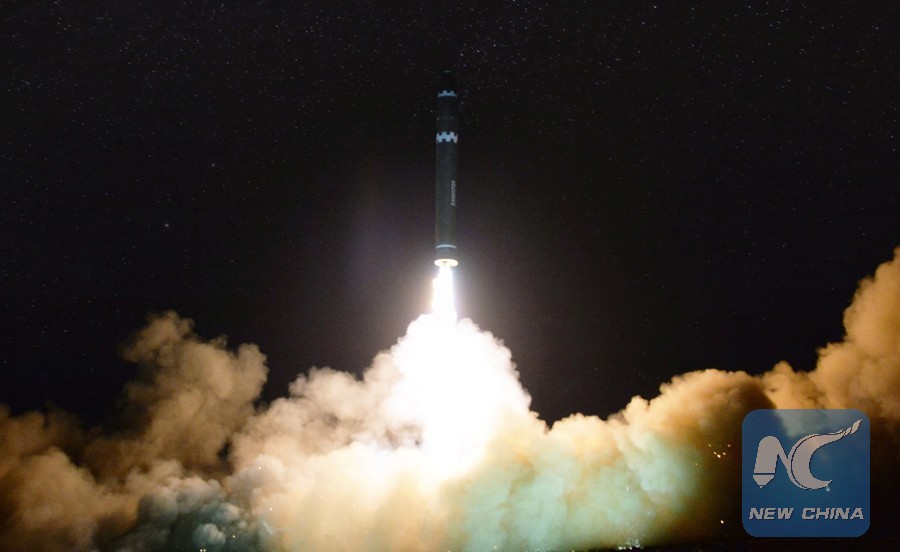
Photo provided by Korean Central News Agency (KCNA) on Nov. 30, 2017 shows the test-firing of an Intercontinental Ballistic Missile on Nov. 29, 2017. (Xinhua/KCNA)
WASHINGTON, Dec. 15 (Xinhua) -- U.S. Defense Secretary James Mattis said Friday that he did not believe the Intercontinental Ballistic Missile (ICBM) newly developed by the Democratic People's Republic of Korea (DPRK) posed a "capable threat" to the United States.
"It is not yet shown to be a capable threat against us right now," said Mattis at a briefing in Pentagon.
The United States is still examining the forensics, which will "take a while," Mattis added.
Also on Friday, U.S. State Secretary Rex Tillerson told the UN Security Council that the United States will continue its "pressure campaign," mainly in the form of economic sanctions, until denuclearization is achieved on the Korean Peninsula.
The U.S. top diplomat also asked for "a sustained cessation" of the DPRK's weapons testing before "talks can begin" between the two countries, a rhetoric seemingly different from his remarks on Tuesday, which stated that the United States was ready to talk with the DPRK "without preconditions."
Pyongyang successfully test-fired a newly developed ICBM in late November, drawing strong condemnation from the international community.
The latest launch by the DPRK came a week after the United States redesignated the DPRK as a "state sponsor of terrorism" and slapped a new round of sanctions against the Asian country.

